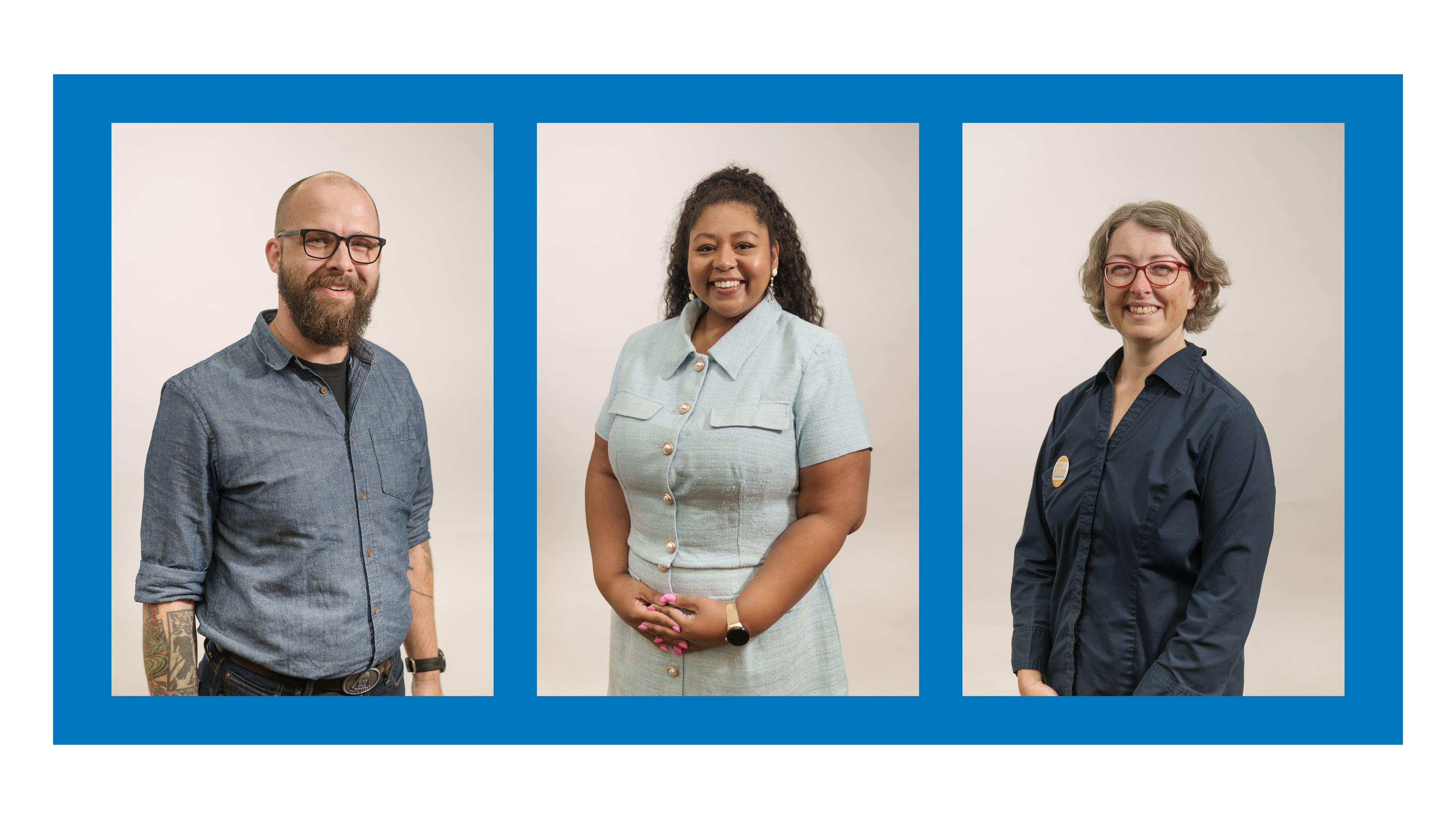Jamie Dunphy
Candace Avalos
Steph Routh
District 1 spans all of Portland east of Interstate 205 and, farther south, east of 82nd Avenue. In many respects, Portland’s charter reform measure was crafted with the intent of granting East Portland a stronger voice in City Hall, in an attempt to level the playing field for the poorest, most racially diverse, and most historically neglected part of the city.
Sixteen candidates are seeking three seats in this district. Seven received public funding, a signal of broad support. Voters can rank up to six. We recommend they choose the following candidates, in descending order.
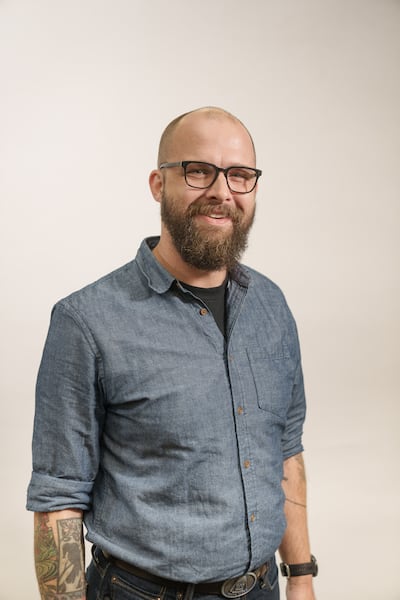
Our top choice is Jamie Dunphy, a lobbyist for the American Cancer Society. Dunphy, 40, worked in City Commissioner Nick Fish’s office as his policy adviser then director from 2015 until Fish’s death from cancer in 2020. Dunphy knows how to make and negotiate policy; we found his answers to our questions about homelessness, drug addiction and the city’s budget nuanced and measured. Over the past year, he’s been the primary spokesman for MusicPortland’s opposition to a Live Nation venue on the Central Eastside. He’s right about the threat Live Nation poses to local venues, promoters and musicians—it’s another signal he chooses his causes well, a virtue that will matter on a council tasked only with setting policy.
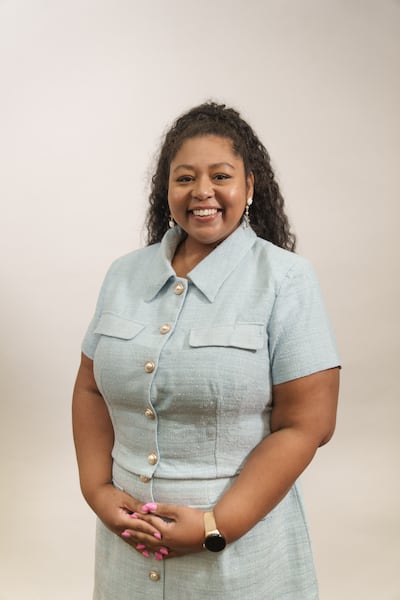
Candace Avalos is executive director of Verde, a climate justice nonprofit that’s received funding from the Portland Clean Energy Fund in recent years. Avalos is a progressive who is a fierce advocate for the nonprofit and social services sectors—sometimes to the detriment of her relationship with more moderate Portlanders and business leaders. She also served on the Charter Commission that devised this city government overhaul, leading to criticism that she essentially crafted a job for herself. We hear the critique but don’t think she should be penalized for civic engagement; we wish more Portlanders spent as much time trying to make the city work.
We’re a little more nervous that Avalos, 36, will antagonize colleagues who aren’t politically aligned with her—she has tended to describe politics in categorical terms of good versus bad. But given East Portland’s historical disenfranchisement, the City Council will need an unwavering champion for the dispossessed. Avalos can be that.
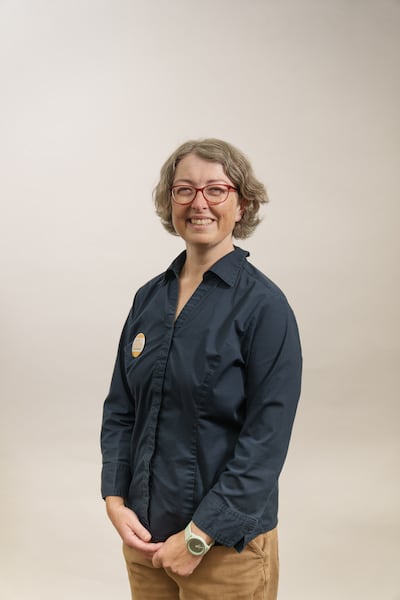
It’s hard to find a City Council candidate, in any of the four districts, who doesn’t like Steph Routh. On one hand, that’s a bit of a red flag: It shows she doesn’t like to piss people off and could struggle to make difficult decisions on the council. But it also positions Routh, 48, well to ensure the needs of District 1 are heard on the 12-member body. Routh, a longtime bicycle, walking and transit advocate who ran the transportation nonprofit Oregon Walks for five years, currently sits on the city’s Planning Commission, and is an adjunct professor at Portland State University (and famously married her bike in 2006), will need to recognize she can’t please everyone, and shouldn’t try. It’s her job to make tough decisions. It’s also ours, and we choose Routh.
That’s the cutoff of who would get elected if you follow our advice. But you can rank three more candidates, and we say these three are strong backup choices.
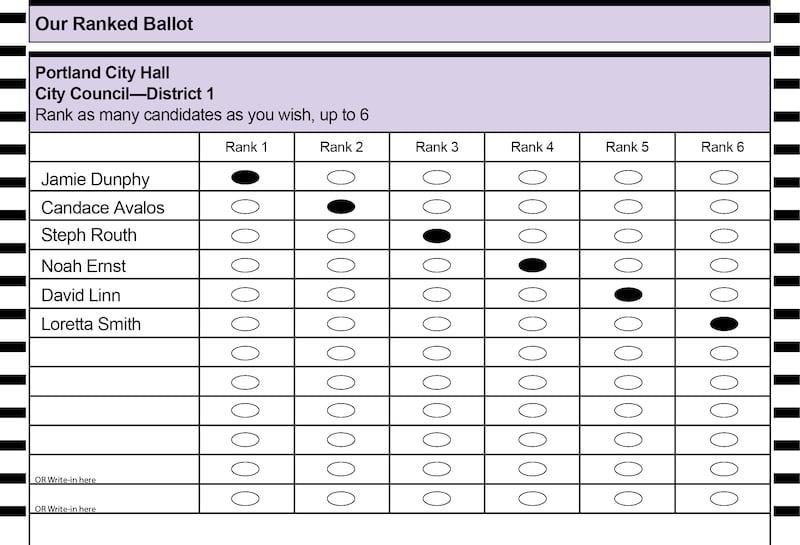
In our fourth spot is Noah Ernst, in-house counsel and supervisor for Radio Cab, who believes the city’s progressive intentions have gotten in the way of order. He’s shown a keen eye for city inefficiencies, and wants to create a new city position to watchdog every nonprofit the city contracts with. We liked that Ernst, 52, could hold two things at once: his deep love for this city and a frank appraisal of just how far our elected officials have let basic services like prompt police response erode.
David Linn grew up in an apartment on 82nd Avenue. He never left East Portland, even after graduating from Portland State University with twin degrees in history and political science; we think his commitment to District 1 speaks volumes. For 15 years, Linn’s day job has been working as one of two staffers for the state of Oregon’s Board of Examiners for Speech-Language Pathology and Audiology, which regulates speech pathologists. During that time, Linn, 42, has held various positions on East Portland neighborhood associations and has consistently lobbied the City Council to pay more attention to the area’s plights.
Loretta Smith spent 20 years working for U.S. Sen. Ron Wyden (D-Ore.) and then went on to serve on the Multnomah County Board of Commissioners from 2011 to 2019. In that time, she was a champion for youth apprenticeships and people of color. (She was also accused of bullying staffers and misspending public funds.) In 2018, Smith ran to become the first Black woman on the City Council, but lost that contest and distinction to Jo Ann Hardesty. This time around, Smith did not describe a vision for the city that went much beyond employing more police and enforcing the city’s camping ban. We want leaders who can think independently of their institutional supporters, and we didn’t see that in Smith. Still, she has some government experience, and the new council will need any that can get.
Other candidates merit a mention. Terrence Hayes, who runs a graffiti removal business and spent 12 years in prison for attempted murder when he was a teenager, would have finished near the top of our list had it not been for a rash of unpaid debts, including business loans and credit payments, that he’s accumulated over the past two years. Hayes has also never voted in Oregon, according to his voter file. Still, we commend Hayes’ thoughtful take on changing Portland’s policing practices by working with officers. We also gave serious consideration to Cayle Tern, who has aided immigrants at APANO and served on the Reynolds School Board.
What Dunphy, Avalos and Routh were known for in high school: Dunphy was a punk-rock, tech theater kid. Avalos was student body president and leader of the step team (what she fondly calls “body drums”). Routh was voted best singer and worst dressed.
